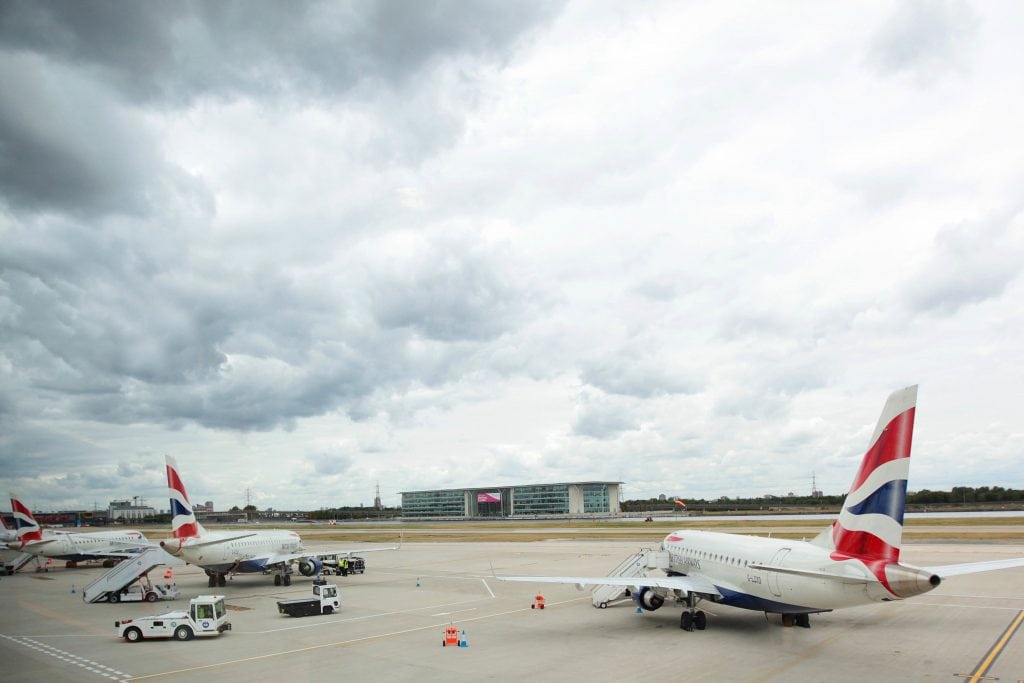Skift Take
Airlines have long hoped for a technological development that would enable them to take back control from travel's middlemen. The New Distribution Capability was supposed to be that solution, but change of this magnitude takes time. At the moment, the British Airways parent seems more than happy to eat up the cost.
When the International Air Transport Association announced plans to give airlines more control over how they sell flight tickets back in 2012, it looked like the industry was about to witness a massive realignment.
As of yet this hasn’t really happened. The big three global distribution systems, namely Amadeus, Travelport, and Sabre (there’s also China’s TravelSky), are still there and the industry is busy coming to grips with the much talked about New Distribution Capability.
But that’s not to say things aren’t going on. Iberia and British Airways —both part of International Airlines Group — along with Lufthansa are among a number of carriers to impose a fee for transactions booked via third parties. International Airlines Group has signed a number of direct-connect agreements with travel agents.
The changes mean that that for Amadeus, 20 percent of the flight tickets it processes are now with airline groups that impose surcharges. That’s a significant figure for a company that makes 65 percent of its annual revenue from its global distribution system platform.
IAG CEO Willie Walsh sees this all as the start of a big shift in the ways airlines work with middlemen.
“We want to have a relationship with the GDSs. We believe they still have a role to play, but not the way it was played in the past,” he told analysts on an earnings call following the release of the company’s full-year results last week.
And despite what may look to some people like a slow breakdown of relationships, Walsh said his company would continue to work with distributors “where it’s sensible to do so.”
Changes to the way the British Airways parent distributes tickets have led to some cost increases for the group, but in the future it likely won’t have to pay as much money to Amadeus and its counterparts. It is short-term pain for a long-term gain.
Annual selling costs for the International Airlines Group rose 11.8 percent to $1.2 billion (€982 million), with costs up 4 percentage points because of the new distribution model.
“We are seeing a very healthy improvement in our direct distribution. And direct distribution for us is much cheaper than distributing through the GDS folks,” Walsh said.
“The short-term issue here is the cost issue, so our costs increased. That’s one of the headwinds that we faced… But over time, it’s the right strategy. And this is ultimately a revenue strategy, but it’s one that we’ll see as, I think, distribution cost increases.”
Sea Change?
All three of the big European airline groups have made moves to take back more control of distribution through the imposition of fees on distribution through third parties. Lufthansa was the first, adding a €16 levy in September 2015, next came International Airline Group, and finally Air France-KLM will start charging a feee in April.
“The aim is to develop direct sales contact on our websites and via IATA NDC. As an enriched messaging standard NDC will enhance communication between airlines and travel agency,” Jean-Marc Janaillac, Air France-KLM CEO recently told analysts.
“It will allow the distribution of rich content and differentiated offers, facilitate the sale of ancillary products and creates a base for consistent response to customer needs on all channels and touch points.”
Lufthansa CEO Carsten Spohr said last March that the company’s new distribution strategy had led to an improvement in loyalty among corporate customers and it had not lost as many passengers as it expected. “So the overall business case is more positive than we thought,” he said.
While Europe’s big three are intent on pushing for more control of their distribution we still might be waiting some time for real change to come, at least according to Amadeus. The company said the level of disintermediation had had no real impact on its 2017 results and that 2018 was looking pretty stable.
The Daily Newsletter
Our daily coverage of the global travel industry. Written by editors and analysts from across Skift’s brands.
Have a confidential tip for Skift? Get in touch
Tags: air france-klm, airlines, amadeus, british airways, gdss, iag, lufthansa, sabre
Photo credit: British Airways aircraft at London City airport. The airlines parent company is pleased with the changes it has made to its distribution strategy. British Airways
